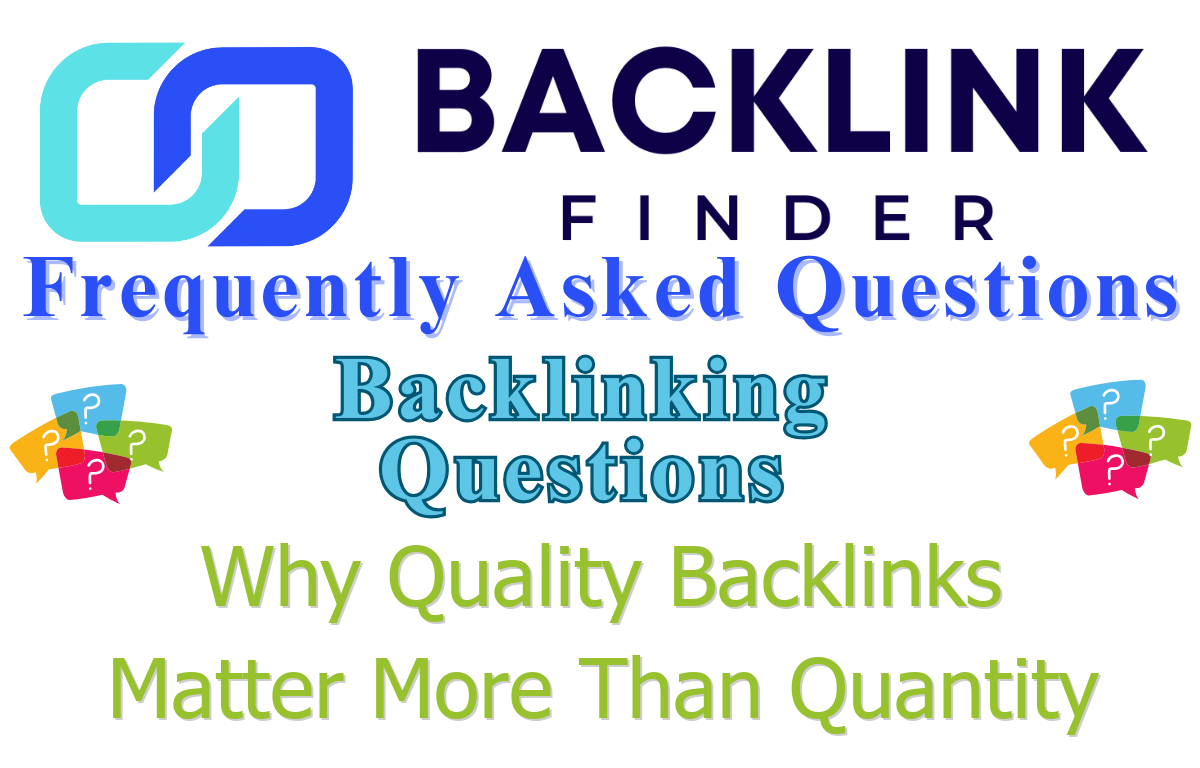Why Quality Backlinks Matter More Than Quantity

Imagine you’re throwing a party. Would you rather have five awesome friends who bring great vibes or fifty strangers who might trash the place? In the world of SEO, backlinks work the same way. Piling up tons of links sounds tempting, but it’s the quality ones that make Google sit up and notice. If you’re new to backlinks, don’t stress—let’s explore why fewer, better links can transform your site’s success. Ready? Let’s roll!
What Makes a Backlink “Quality”?
A backlink is when another site links to yours, like a shoutout in a crowded room. A quality backlink comes from a trustworthy, relevant source—think a respected blog, a news site, or an industry leader. Google sees these as glowing endorsements, not just noise.
- Example: Your pet grooming site gets a link from a vet’s blog post about “Top Dog Care Tips.” That’s gold because it’s relevant and trusted.
- Another Example: A local bakery’s recipe page is linked by a food festival’s “Best Desserts” roundup. The link carries weight due to the event’s credibility.
- Stat: Just one high-quality backlink can boost a page’s ranking more than 100 low-quality ones, per a 2024 Ahrefs study.
Why Google Cares About Quality
Google’s job is to serve the best answers to searchers. It’s like a matchmaker pairing users with top-notch sites. Backlinks help Google decide who’s trustworthy. Quality links from reputable sites signal your content is valuable, while a flood of spammy links raises red flags.
Think of it this way: One recommendation from a Michelin-star chef means more than 20 from random Yelp reviews. Quality backlinks build your site’s reputation, helping you rank for keywords like “best yoga studio” or “vegan meal plans.”
- Example: A fitness coach’s blog gets linked by Healthline’s article on “Home Workouts.” Google trusts Healthline, so the coach’s rankings climb.
How Quality Beats Quantity
Let’s break down why a few stellar backlinks outshine a pile of duds:
- Trust Signals: A link from a high-authority site (like Forbes or a .edu domain) tells Google you’re credible. One link from a site like that can skyrocket your rankings.
- Niche Relevance: Links from sites in your field (e.g., a travel blog linking to your hotel site) show Google you’re a go-to source for specific topics.
- Long-Term Value: Quality links keep working for years, driving traffic and rankings. Low-quality links? They often vanish or get penalized.
Here’s an analogy: Quality backlinks are like gold coins—rare and valuable. Quantity-focused links are like pocket change—easy to collect but not worth much. Focus on the gold!
- Example: A tech startup gets a backlink from TechCrunch’s “Innovators to Watch” list. That single link boosts their visibility more than 200 links from obscure directories.
How to Spot Quality Backlinks
Not sure what makes a backlink great? Here’s a beginner’s checklist:
- Authority: Comes from a site with a strong reputation. Check its Domain Authority (DA) with Moz’s free tool—aim for DA 30+.
- Relevance: Matches your niche. A photography blog linking to your camera store is perfect; a car repair site, not so much.
- Natural Fit: The link feels organic, like it belongs in the content. Forced links scream “spam” to Google.
Want a head start? Platforms like Backlink Finder, with its 400,000+ marketplace listings, connect you to quality guest post opportunities and keyword-optimized backlinks. It’s a beginner-friendly way to score links that Google loves.
- Example: A coffee shop uses Backlink Finder to land a guest post on a foodie blog. The resulting backlink drives traffic and bumps their “best local coffee” ranking.
Busting a Myth
Some beginners think the more backlinks, the better—1000 links must beat 10, right? Wrong! Google’s algorithms (like Penguin) sniff out unnatural link-building. A handful of quality links from trusted sites will always outperform a bucket of spammy ones.
Stop chasing link quantity! One backlink from a trusted, relevant site can do more for your SEO than 100 low-quality ones. #SEO #Backlinks— Lily Ray (@lilyraynyc) August 5, 2023
Lily’s tweet nails it—quality is king. It’s a reminder to focus on links that truly move the needle.
Simple Ways to Earn Quality Backlinks
Ready to build links that boost your site? Try these beginner steps:
- Create Shareable Content: Write a post people love, like “7 Budget-Friendly Home Decor Ideas.” Bloggers and sites are more likely to link to it.
- Guest Blog: Pitch a guest post to a niche site. For example, a dog trainer could write “Puppy Training 101” for a pet blog, including a link back.
- Connect Locally: Ask local organizations—like a chamber of commerce—to link to your business in their directories or event pages.
- Example: A yoga studio writes a guest post for a wellness site about “Mindful Stretching.” The backlink helps them rank for “yoga classes near me.”
- Another Example: A bookstore gets a link from a local library’s “Community Partners” page, boosting their “bookstore events” ranking.
Go for one quality link at a time—think marathon, not sprint!
Beginner Mistakes to Skip
Steer clear of these traps to keep your backlinks working for you:
- Buying Cheap Links: Those “500 backlinks for $10” deals? They’re trouble. Google often penalizes sites for unnatural links.
- Ignoring Relevance: A link from a fitness site to your bakery won’t help much. Stick to your niche for maximum impact.
- Skipping Checks: Monitor your backlinks with Google Search Console. Spot a bad one? Disavow it to stay in Google’s good graces.
- Example: A café buys 200 cheap links from random sites. Their rankings drop after Google flags them as spam.
Further Reading
Hungry for more backlink know-how? Dive into these beginner-friendly resources:
- Moz’s Guide to Backlinks – A clear breakdown of why quality links matter.
- Ahrefs’ Link Building Strategies – Easy ways to earn links that boost rankings.
- Search Engine Land: Quality Backlinks – Insights on what Google rewards in links.

